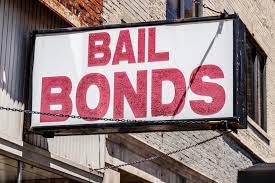Mean by Bail Bond
When someone is arrested for a crime they’re likely to be held in jail until their court hearing. In some cases, however, people may be able to get out of jail in exchange for paying a sum of money known as bail. The amount of the bail is set by a judge during a bail hearing and it’s this process that many find confusing. The word bail is often used interchangeably with the term bond, and the two have very different meanings.
Bail is basically a promise to return for future court appearances and adhere to other conditions set by the judge. People who can’t afford to pay the total amount of their bail can go through a bonding company to post a bond on their behalf instead. A bondsman charges a fee to do this, which is usually 10% of the total bail amount. The person who posts the bail will also have to sign an agreement that states that if they don’t return for their scheduled appearances, the court could collect from them up to the full value of the bond.
A bail bond is a financial arrangement that allows a defendant to be released from custody while awaiting trial. When a person is arrested, they may be held in jail until their court date. However, if the defendant is unable to afford the full bail amount set by the court, they have the option to seek the services of a bail bonds.
It’s important to note that if the defendant appears for all their court hearings, the bail bond is typically exonerated, and the bondsman’s liability is lifted. However, if the defendant fails to appear, the bondsman may hire a bounty hunter to locate and apprehend the defendant in order to fulfill their financial obligation to the court.

What Do You Mean by Bail Bond?
Bail bonds play a crucial role in the criminal justice system, providing a way for individuals to secure their release from custody while ensuring they have a strong incentive to appear for their court proceedings. They also offer a practical solution for those who may not have the financial means to cover the full bail amount on their own.
The judge will consider various factors when setting the bail amount including the nature of the crime, whether it’s a misdemeanor or a felony and the defendant’s history. They will also look at the likelihood that the defendant will flee or not return for their next court date. If the judge thinks that you are a flight risk, then they will refuse to release you from jail and you will have to stay in custody until your case is over.
A judge will also take into account the defendant’s character and if they have any other financial obligations to be met. In some cases, a judge might choose to release the defendant without bail if they think that you are unlikely to flee and that you’ll come back for your next court date. A judge will often decide on personal recognizance if the defendant is being charged with a minor offense like a traffic ticket.
Some crimes, especially those that involve a large amount of money or physical violence, will not be eligible for a personal recognizance release. In these cases, the judge will be expected to put a bail amount in place that is high enough to keep the defendant in custody until their case is over.



